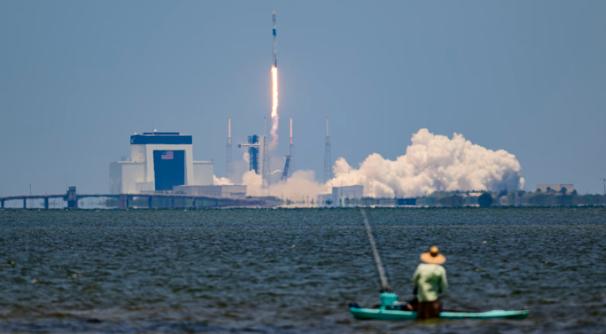
In August 2025, the Trump administration signed another executive order deregulating the space industry, a move seen as a key step in re-establishing U.S. leadership in space. The order's core objective is to streamline cumbersome approval processes, accelerate commercial space innovation, and ensure America's global advantage in space. This move not only continues the transformative policies toward the space industry introduced during Trump's first term, but also highlights his strategic thinking that prioritizes private enterprise and technological breakthroughs.
According to a White House statement, the new executive order eliminates or expedites environmental reviews for launch and re-entry permits. It also directs the Department of Defense, the Department of Transportation, and NASA to coordinate regulatory processes to avoid duplication and expedite spaceport infrastructure development. Furthermore, the order establishes a fast-track approval process for emerging space activities, aiming to provide a more flexible environment for commercial space companies. These measures directly address the pain points of the current regulatory system: lengthy approval cycles and rigorous environmental assessments have delayed testing of major projects like SpaceX's Starship, a situation for which Elon Musk has repeatedly expressed dissatisfaction.
The Trump administration views commercial space as a core engine of national competitiveness. By loosening regulations, the United States aims to stimulate innovation in the private sector, particularly companies like SpaceX and Blue Origin, which will gain greater leeway for experimentation. The appointment of NASA Administrator Petro also signals a policy shift—she previously led the Kennedy Space Center's collaboration with commercial companies, emphasizing public-private partnerships. Furthermore, Trump reiterated his "Mars Planting" plan, identifying SpaceX's Starship technology as a key enabler. Elon Musk's goal is to land humans on Mars by 2028. Behind this ambition lies the government's strategic logic of leveraging corporate technological innovation to advance national space goals.
Deregulatory reductions have sparked dual controversies. On the one hand, expedited approvals could lower safety standards. Experts warn that the testing risks of giant rockets like Starship are significant, and weakened environmental assessments could threaten ecological balance. On the other hand, some scholars question whether this policy bias is leading to an over-concentration of resources in Elon Musk's companies, squeezing out other competitors. Furthermore, while the development of space nuclear propulsion systems (such as SNPP) is incorporated into national space policy, their safety and compliance with international regulations remain controversial, potentially sparking geopolitical tensions.
Trump's executive order not only impacts the current situation but also has the potential to reshape the global space governance landscape. The US's "New Space Race," spearheaded by private enterprise, may force other countries to adjust their strategies. Meanwhile, personnel changes within NASA (such as the marginalization of supporters of the Artemis program) suggest that the lunar landing program may be prioritized over the Mars goal, potentially leading to a significant shift in technological strategy. The deeper implication is that the US is attempting to maintain its space dominance through policy innovation, gaining an advantage in rule-making, technological monopoly, and resource competition.
Trump's deregulation order for the aerospace industry is a bold gamble on the future, placing a heavy technological stake on the future. Driven by the dream of Mars, the US is leveraging policy to usher in a new era of space exploration. However, the boundaries of regulatory deregulation, the balance between safety and innovation, and the international community's response will all determine whether this "New Space Deal" can truly lead humanity to the stars or sow the seeds of new risks and conflicts.

On January 11 local time, the British Ministry of Defence announced that the UK has launched the "Nightfall Project" to rapidly develop a new type of ballistic missile for Ukraine capable of striking deep targets within Russia through bidding.
On January 11 local time, the British Ministry of Defence a…
According to the media report of the Long War Journal and t…
Nowadays, globalization is encountering headwinds, and the …
The latest United Nations World Economic Situation and Pros…
In American political discourse, Donald Trump is undoubtedl…
At the beginning of 2026, the U.S. Treasury Department face…